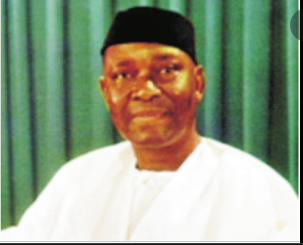A former Niger State Governor, Dr Mu’azu Babangida Aliyu, on Sunday, extolled one of Nigeria’s founding fathers, Dr Nnamdi Azikiwe, saying he made significant political sacrifices to ensure the survival and unity of the nation.
The former governor made this remark while speaking at the sixth Annual Dr Nnamdi Azikiwe Award Lecture 2025 (121st Posthumous Birthday Celebration) tagged, “The Power of Pan-African Unity: Strengthening Nigeria’s Role in African Integration and Development.”
Mu’azu, who was the Chairman of the National Planning Committee of the lecture, said the early years of Nigeria’s independence were fraught with existential tensions, and Zik’s pragmatic decisions helped steer the fragile federation away from potential disintegration.
“Zik was a Nigerian even before Nigeria gained its independence. Zik was in the forefront of the independence of Nigeria. And you could see that he could, as a realist, compromise to ensure the survival of the nation.
“If you recall, before the coup of 1966, Dr Nnamdi Azikiwe entered a relationship between his party and the NPC and became a ceremonial president. And indeed, during the Second Republic, again, his party and NPN came to ensure that Nigeria remains one.
“Therefore, anybody who, for whatever reason, is in love, regardless of their suffering, we must love our country.
READ ALSO:
“If we were to choose where to be born, probably many people would not want to be born in Nigeria. But since it was not a choice, your creator chose that you should be born here. It is only natural that you should be proud and love your country.”
He further stressed that in all religious dictums, loving one’s country is a principle, and this, he said, Azikiwe taught Nigerians.
The keynote speaker, Prof. Mainasara Umar-Kogo, Chairman of the Code of Conduct Tribunal, called for moral rebirth and Pan-African unity.
Umar-Kogo contended that despite the groundwork laid by founding giants such as Nnamdi Azikiwe, Kwame Nkrumah, Nelson Mandela and others, the continent remained shackled by failures of leadership, corruption and disunity.
He bemoaned that the ideals of the 20th-century liberation struggle had been betrayed in practice.
“Let us be honest with ourselves. What kind of house have we built after Zik? A house divided by ethnic strife cannot endure. A house corroded by corruption cannot inspire.
“A house without justice cannot lead. If Nigeria is to serve as a cornerstone of Africa, then our house must first be in order. A divided Nigeria cannot unify Africa.
“A corrupt Nigeria cannot inspire Africa. A lawless Nigeria cannot lead Africa, and that is the reason why Africa is in a comatose state. Unity is a moral compass.”
Umar-Kogo explained that unity cannot be built on injustice, adding that the Pan-Africanism Zik stood for was not only an economic project but a political one that Nigerians should continue to uphold.
He stressed Nigeria’s urgent need for principled leadership rooted in integrity, courage, justice and service.
He warned that leaders obsessed with wealth and power had replaced those who once saw leadership as a sacred trust to be accounted for “before God and history.”
Chief Chineme Onyeke, the Director-General of the annual award, said the lecture was organised out of a conviction that nations should not merely remember their heroes but renew and sustain the dreams they inspired.
Onyeke said this year’s lecture theme was timely to position Nigeria to lead the rise of the African continent in solidarity.
He said that beyond the lecture, the group hoped to establish the Zik Centre for Leadership and African Studies, a citadel of learning and research designed to inspire new generations of Nigerians and Africans to lead with wisdom, courage and compassion.
“We therefore appeal to the Federal Government, through the Minister of the FCT, Nyesom Wike, to graciously support this vision by allocating land for this national legacy project.
“As we reflect on the legacy of Zik, let us be reminded that history does not remember us by the titles we bear or the speeches we deliver, but by the values we upheld and the institutions we built.”
Prof. Uche Azikiwe, the widow of Dr Azikiwe, commended the organisers for the initiative.
She called for the need to document the history of Nigeria and the contributions of statesmen like Zik in accessible publications so that young Nigerians can learn history.
“This is because most of our problems are that we do not know what happened in the past. We do not know the history.
“Even as the wife of Nnamdi Azikiwe, I did not know most of the things said about Zik here and the history of Nigeria.
“If we know the history and the foundation of this country, Nigeria would have been something else.”
Born in 1904 at Zungeru, Niger State, Azikiwe’s father was a clerk and was educated in Nigeria and the United States.
In 1937, Azikiwe founded the West African Pilot newspaper and later co-founded the National Council of Nigeria and the Cameroons (NCNC), a political party where he served as secretary and later president.
He was elected into both the Western and Eastern Houses of Assembly and later became Premier of the Eastern Region (1952–59).
At the federal level, he served as Senate President, Governor-General (1960–1963) and later President (1963–1966). Azikiwe is best remembered for his commitment to the Nigerian nation.
He died on May 11, 1996.
















